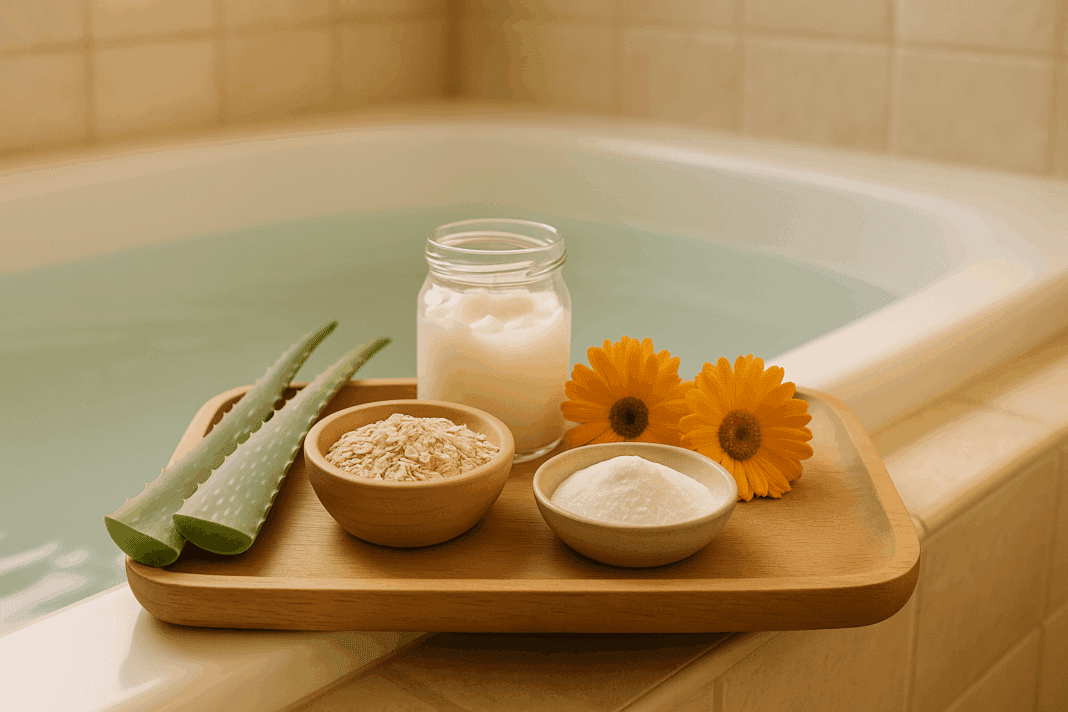Itching, while common and often perceived as minor, can disrupt daily life, interfere with sleep, and indicate underlying skin or health issues. For millions, seeking relief from persistent or recurring itchiness is more than a matter of comfort—it’s a quest for physical and emotional well-being. Many individuals now prioritize natural solutions to soothe irritated skin, choosing remedies that avoid the potential side effects of synthetic treatments. This article explores seven powerful natural anti itch solutions for common skin irritations, drawing from time-tested traditions, emerging research, and holistic care practices. Whether your discomfort arises from dryness, eczema, allergies, or insect bites, these remedies offer gentle, effective alternatives supported by both anecdotal wisdom and scientific insight.
You may also like: Breakthrough Approaches to Eczema Alternative Healing: What Works and Why It Matters
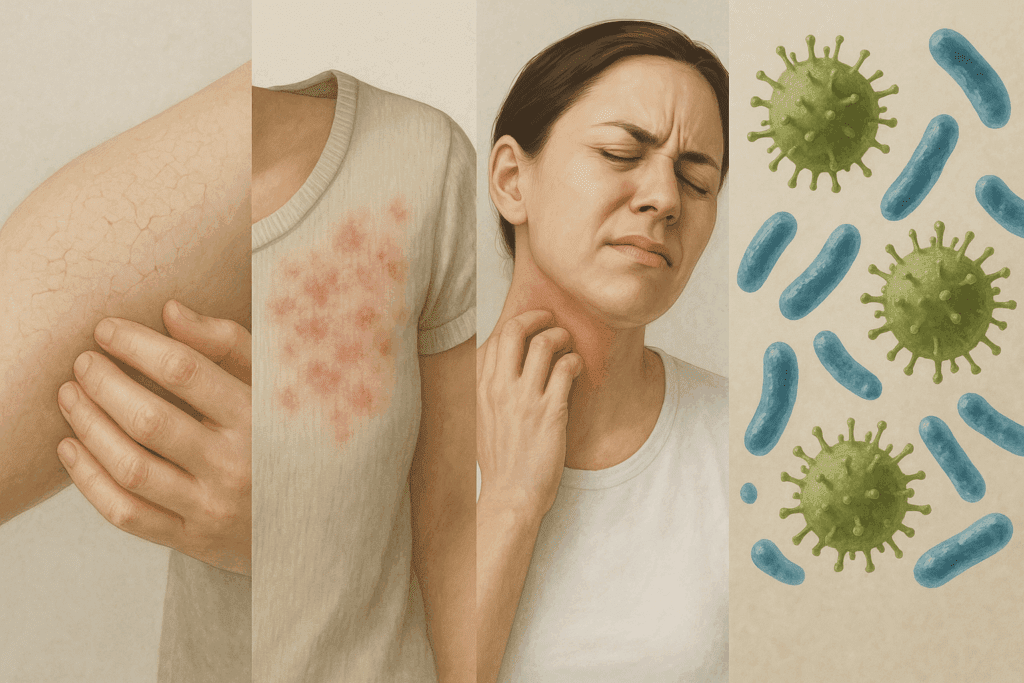
Understanding Itchy Skin: Root Causes and Common Triggers
Before diving into the remedies, it’s essential to understand what makes skin itchy in the first place. Itching, medically known as pruritus, can be triggered by a wide array of conditions. Dry skin, especially in colder climates or with age, is one of the most frequent culprits. When the skin lacks moisture, its barrier function becomes compromised, leading to microcracks and inflammation that produce an itching sensation. Other common causes include allergic reactions to foods, fabrics, soaps, and environmental allergens like pollen or dust mites.
Skin disorders such as eczema, psoriasis, and contact dermatitis often present with chronic itchiness, as do insect bites and fungal infections. Even internal factors like kidney disease, thyroid imbalances, or liver dysfunction can manifest as unexplained itching. Stress, too, can intensify itch by disrupting immune responses and triggering the release of histamines. Recognizing the origin of your itch is crucial, as it informs the most appropriate course of treatment—including whether a natural remedy will suffice or if medical intervention is warranted.
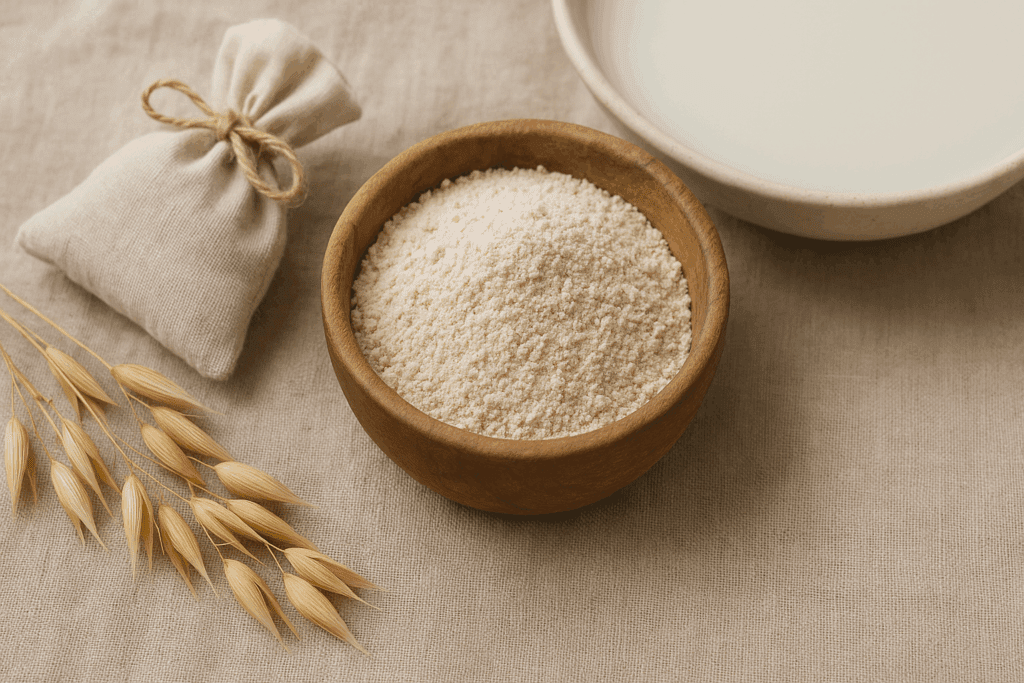
Colloidal Oatmeal: A Soothing Natural Anti Itch Powerhouse
One of the most scientifically backed natural anti itch remedies is colloidal oatmeal. This finely ground oatmeal is suspended in liquid to allow its active compounds to work directly on the skin. Colloidal oatmeal is rich in beta-glucans and avenanthramides, which exhibit anti-inflammatory, antioxidant, and skin-soothing properties. These compounds help restore the skin’s pH balance, reduce redness, and relieve the persistent urge to scratch.
For those suffering from eczema or allergic rashes, colloidal oatmeal baths offer immediate comfort and long-term support. Soaking in lukewarm water infused with colloidal oatmeal for 15 to 20 minutes allows the skin to absorb its beneficial properties. This remedy is gentle enough for daily use, even in children and individuals with sensitive skin. Moreover, colloidal oatmeal is often recommended in clinical dermatology settings as part of a comprehensive home remedy for itching.
Integrating this remedy into your routine can be as simple as adding oatmeal powder to bathwater or choosing products that list colloidal oatmeal among the primary ingredients. When combined with a fragrance-free moisturizer afterward, the effects can be long-lasting, helping to fortify the skin barrier against future irritation.
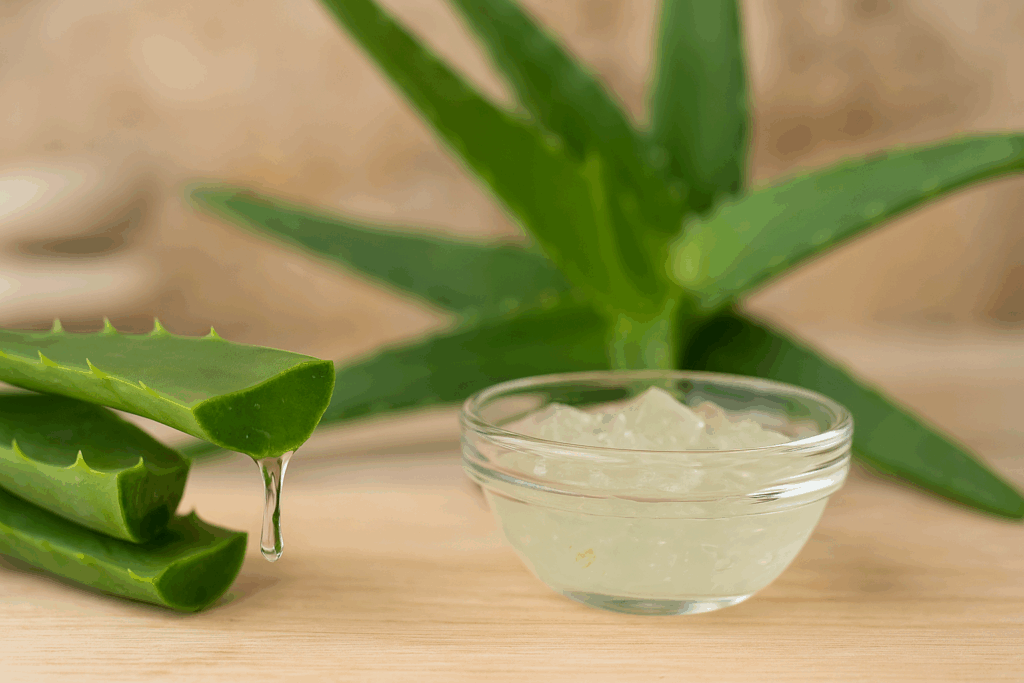
Aloe Vera: Hydration and Healing in One Plant
Aloe vera has long held a prominent place in the world of natural skincare, and for good reason. This succulent plant is lauded for its hydrating, anti-inflammatory, and antimicrobial properties. It contains compounds such as acemannan and glycoproteins that soothe skin irritation, stimulate healing, and reduce inflammation. When applied topically, aloe vera gel forms a cooling layer that helps diminish the burning and itching often associated with sunburn, bug bites, and allergic reactions.
For individuals seeking a reliable home cure for itchy skin, fresh aloe vera gel can be an excellent choice. Cutting open a mature aloe leaf and applying the inner gel directly to the affected area delivers concentrated relief. Store-bought gels can also be effective, but it’s important to choose versions free from added alcohols, artificial colors, or fragrances, as these can aggravate sensitive skin.
Aloe vera’s versatility makes it a staple in home remedies to cure itchy skin. It can be used as a daily moisturizer, a spot treatment for flare-ups, or even combined with other natural agents like coconut oil for enhanced benefits. With consistent use, aloe vera not only soothes but also promotes faster recovery by supporting the skin’s natural healing processes.
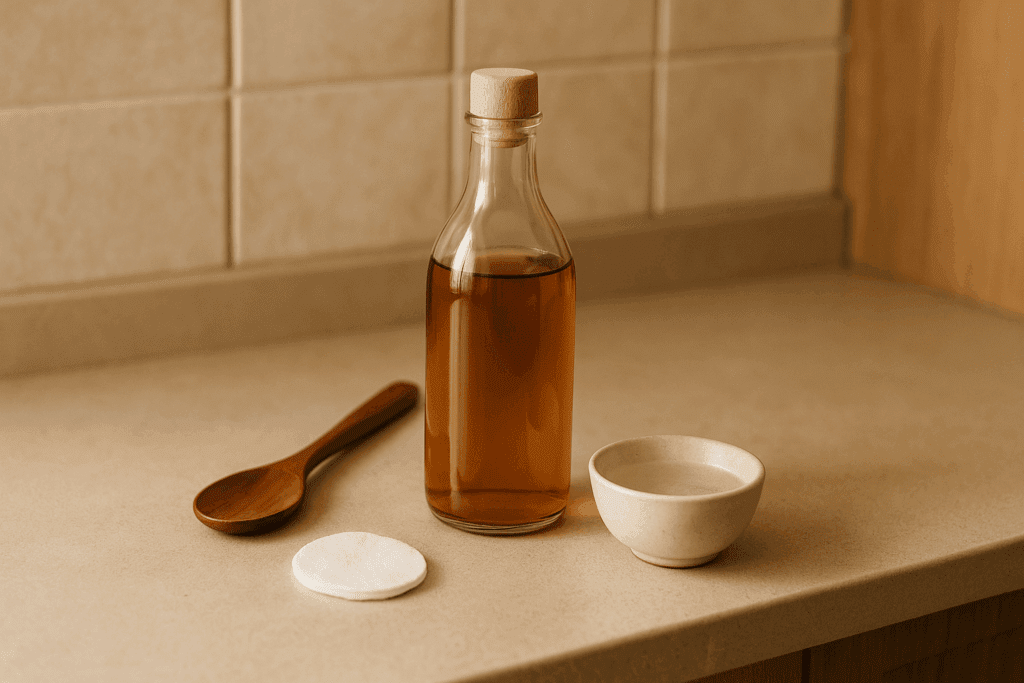
Apple Cider Vinegar: A Potent Antimicrobial and pH Balancer
Among the lesser-known yet highly effective natural remedies for itching is apple cider vinegar. When diluted properly, this pantry staple offers powerful antimicrobial and antifungal benefits, making it particularly useful for itchiness stemming from fungal infections or imbalanced skin flora. Its acidity also helps restore the skin’s natural pH, creating an environment that discourages the growth of harmful bacteria and yeasts.
To use apple cider vinegar as a home medicine for itching, mix it with water in a 1:1 ratio and apply it to the itchy area using a clean cotton pad. Alternatively, a quarter cup can be added to a lukewarm bath for full-body itch relief. It is essential to avoid applying undiluted vinegar to broken or raw skin, as this can cause burning or irritation.
Apple cider vinegar has also been used in scalp treatments for itchiness related to dandruff or seborrheic dermatitis. Its antimicrobial properties target the underlying causes while its pH-balancing effects support healthier skin and hair. As with all acidic treatments, moderation is key, and patch testing is advisable, especially for those with sensitive or reactive skin types.
Coconut Oil: A Natural Moisturizer and Barrier Rebuilder
Coconut oil has gained widespread popularity as a skincare essential, and its role as a natural anti itch solution is well-deserved. Rich in lauric acid, capric acid, and vitamin E, coconut oil helps reduce inflammation, combat bacterial and fungal infections, and seal in moisture. This makes it particularly effective for dry, flaky, or eczema-prone skin that is vulnerable to itching.
As a home remedy for itchy skin, virgin coconut oil should be applied to clean, slightly damp skin to enhance absorption and retention. It can be used daily or even multiple times a day on trouble spots such as elbows, knees, and ankles. Many users find relief when coconut oil is massaged into the scalp for dandruff-related itch or applied post-shaving to soothe razor burn.
What distinguishes coconut oil from synthetic moisturizers is its ability to not only hydrate but also support the skin’s lipid matrix. This barrier function is crucial for preventing environmental irritants from penetrating the skin and triggering itch responses. By rebuilding the skin’s defenses, coconut oil addresses both the symptoms and root causes of discomfort, making it a powerful ally in the natural itch relief arsenal.
Baking Soda: A Gentle Exfoliant and Alkaline Itch Reliever
Baking soda, or sodium bicarbonate, offers another versatile solution for those seeking home itch relief. Its mild alkalinity helps neutralize acidic toxins on the skin, while its granular texture provides gentle exfoliation to remove dead skin cells that may trap allergens or irritants. These properties combine to make baking soda particularly useful for temporary itch relief, especially from insect bites, heat rash, or poison ivy exposure.
To create a simple home remedy, mix baking soda with a small amount of water to form a thick paste. Apply this directly to the itchy area and allow it to sit for 10 to 15 minutes before rinsing off. For more extensive itching, such as hives or general dryness, adding half a cup of baking soda to a warm bath can offer full-body relief.
While baking soda is generally safe for occasional use, overapplication can disrupt the skin’s natural pH and lead to dryness. Therefore, it should be used in moderation and followed by a fragrance-free moisturizer to lock in hydration. Despite its simplicity, baking soda remains one of the most accessible and effective homemade remedies for itching, particularly when used as part of a broader skincare strategy.
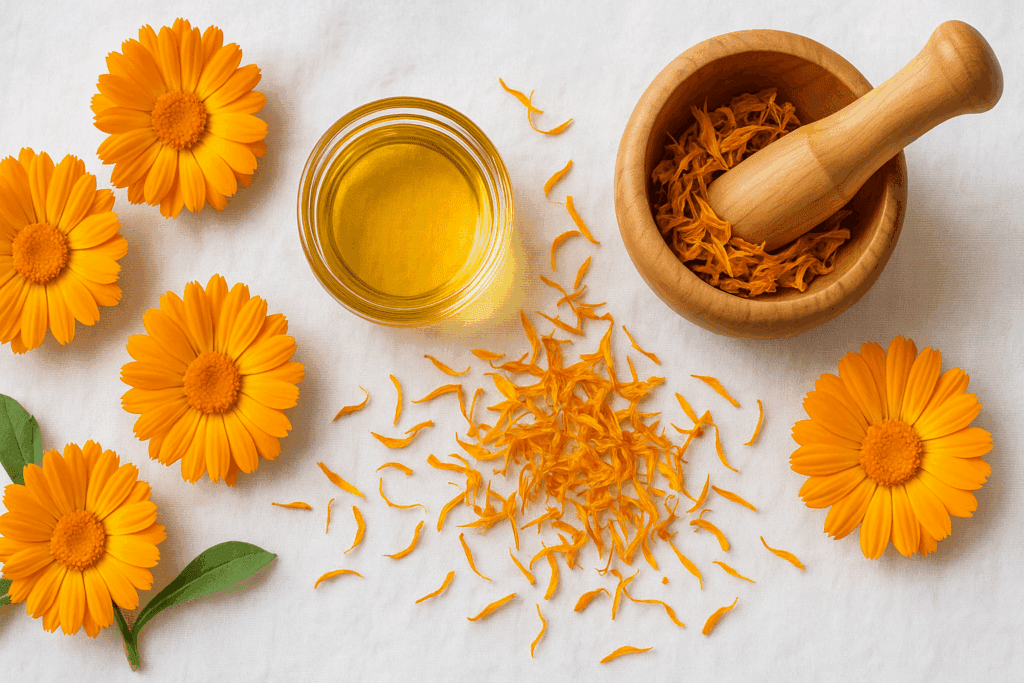
Calendula: A Time-Tested Botanical with Anti-Inflammatory Power
Calendula, derived from the marigold flower, has been used for centuries in traditional medicine to treat skin wounds, rashes, and inflammation. Its unique phytochemical profile, rich in flavonoids and saponins, imparts strong anti-inflammatory and antimicrobial effects. Calendula not only reduces itching but also accelerates healing, making it an excellent natural remedy for itchy skin caused by eczema, diaper rash, or minor burns.
Topical calendula preparations come in many forms, including creams, ointments, oils, and tinctures. For daily use, calendula oil gently massaged into irritated areas can offer lasting comfort without the greasiness of some heavier emollients. For more acute symptoms, calendula salves provide targeted relief and help prevent secondary infections by forming a protective barrier over compromised skin.
The anti-itch capabilities of calendula are further enhanced when combined with other natural agents like chamomile or lavender, both of which also contain soothing essential oils. With its excellent safety profile, calendula stands as one of the most trusted and effective natural remedies for skin itching across all age groups, including infants and the elderly.
Witch Hazel: A Cooling Tonic for Itch and Inflammation
Witch hazel is a botanical extract known for its astringent, anti-inflammatory, and analgesic properties. Derived from the bark and leaves of the Hamamelis virginiana plant, witch hazel is widely used to treat minor skin irritations, insect bites, and allergic rashes. Its high tannin content helps constrict blood vessels and reduce swelling, providing near-instant relief from itching and discomfort.
As a home remedy for itchy skin, witch hazel can be applied directly to the skin using a clean cotton ball or gauze pad. It is particularly effective for post-shaving irritation, hemorrhoid-related itch, or itchy areas associated with hives or dermatitis. When choosing a witch hazel product, it’s best to select versions free from added alcohol or artificial fragrances, which can compromise its skin-soothing properties.
What makes witch hazel especially valuable is its dual role as both a treatment and a preventative measure. Regular use can reduce the frequency and intensity of itch episodes by maintaining the integrity of the skin barrier and preventing the build-up of irritants. As a staple in home itch relief kits, witch hazel remains a gentle yet powerful tool for managing inflammation and itchiness.
Lifestyle Considerations That Enhance Natural Anti Itch Remedies
While natural anti itch treatments can offer significant relief, their effectiveness is amplified when paired with supportive lifestyle habits. Staying well-hydrated helps maintain skin elasticity and barrier function, reducing the likelihood of microtears that trigger itch. A nutrient-rich diet high in omega-3 fatty acids, vitamins A and E, and antioxidants supports skin health from the inside out.
Avoiding harsh soaps, wearing breathable clothing, and managing stress are also key elements in preventing and minimizing itch episodes. Stress management is particularly important, as psychological stress can provoke flare-ups in chronic conditions like eczema or psoriasis. Practices such as mindfulness, yoga, or cognitive-behavioral therapy may complement physical treatments by reducing underlying triggers.
In addition to physical care, environmental modifications such as using a humidifier in dry climates or avoiding known allergens can significantly reduce itch frequency. These holistic adjustments transform temporary relief into long-term comfort and resilience, enhancing the impact of natural remedies.
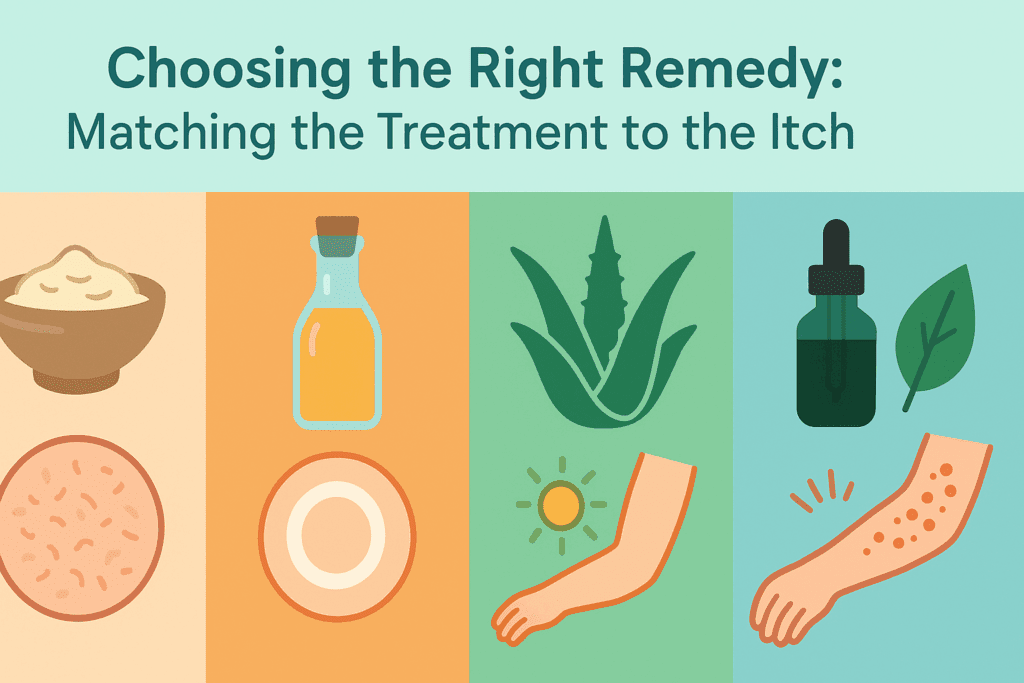
Choosing the Right Remedy: Matching the Treatment to the Itch
Different causes of itching call for tailored approaches. For example, fungal or microbial itches respond well to apple cider vinegar or coconut oil due to their antimicrobial properties. On the other hand, dry skin responds best to emollient-rich treatments like colloidal oatmeal and aloe vera. Knowing your skin type, the likely cause of irritation, and any sensitivities you may have allows you to choose the remedy with the highest likelihood of success.
It’s also important to remember that combining remedies can enhance results. A routine that includes a soothing oatmeal bath followed by aloe vera application and a moisturizing layer of coconut oil might prove more effective than using any of those remedies in isolation. Ultimately, experimentation under guidance from a qualified dermatologist or natural health practitioner ensures safe and effective use.
Frequently Asked Questions: Expert Insights on Natural Anti Itch Remedies for Skin Irritations
What is the best natural anti itch solution for people with highly sensitive skin?
For individuals with highly sensitive skin, the best natural anti itch remedy tends to be one with minimal ingredients and no added fragrances or preservatives. Pure aloe vera gel, directly harvested from the plant, is one of the most effective and gentle solutions available. It delivers moisture while calming inflammation, making it ideal for those prone to allergic reactions. Another excellent option is cold-pressed, unrefined shea butter, which provides a natural barrier against environmental irritants without clogging pores or introducing potential allergens. Sensitive skin sufferers should always patch-test even natural products and monitor for delayed reactions, especially when using home remedies for skin itching that involve botanical extracts or essential oils.
Can dietary changes help enhance the effectiveness of home remedies for itchy skin?
Absolutely, dietary changes can play a significant role in supporting the skin’s ability to recover and resist itching. A nutrient-dense diet rich in omega-3 fatty acids, vitamin D, and antioxidants supports the skin barrier from within. Foods like salmon, flaxseeds, leafy greens, and citrus fruits promote cellular repair and reduce inflammation, which can lower the overall severity of itch. Avoiding processed foods and allergens—such as dairy, gluten, or artificial additives—may help identify dietary triggers for chronic skin irritation. While home medicine for itching often starts with topical care, combining it with an anti-inflammatory diet can maximize long-term relief and skin resilience.
How do natural anti itch treatments compare with over-the-counter antihistamines?
Natural anti itch treatments and over-the-counter antihistamines address itchiness through different mechanisms. While antihistamines block histamine receptors in the body, which helps in cases of allergy-induced itch, they can cause drowsiness and may not be suitable for everyone, particularly children or the elderly. Natural remedies for itchy skin like witch hazel, oatmeal baths, or calendula extract work at the skin level to reduce irritation without systemic effects. Although the onset of relief may be slower, these solutions tend to be safer for prolonged use and pose fewer side effects. They also allow individuals to customize treatments to their skin type and sensitivity levels, providing a more holistic alternative for long-term itch management.
What is the role of mental health in managing chronic itch, and how can natural remedies support emotional well-being?
Mental health is increasingly recognized as both a trigger and an amplifier of chronic itching. Stress, anxiety, and sleep disturbances can weaken the immune response and heighten skin sensitivity. Natural remedies for itching—especially those with calming properties like chamomile, lavender, or oatmeal—can indirectly support emotional regulation. Practices such as mindfulness meditation, aromatherapy, or journaling, when combined with consistent skin care, help create a sense of ritual and control that alleviates stress-related flare-ups. Viewing home remedies for itching as part of a broader self-care routine may yield better outcomes by addressing both the physical discomfort and the psychological distress often associated with chronic itch conditions.
How effective are homemade remedies for itching when treating insect bites or plant-induced rashes?
Homemade remedies for itching are often very effective in treating mild to moderate cases of insect bites or rashes caused by contact with plants like poison ivy or nettles. Baking soda paste, for example, provides immediate relief by neutralizing toxins and reducing inflammation, while apple cider vinegar can prevent secondary infections with its antimicrobial properties. Applying a cooled chamomile tea bag or a compress soaked in green tea also helps to soothe swelling and itchiness. However, if symptoms worsen, include blistering, or are accompanied by systemic signs like fever, professional evaluation becomes necessary. For most people, home itch relief remedies work well as a first line of defense before escalating to more intensive treatments.
How do seasonal changes affect the success of home remedies to cure itchy skin?
Seasonal changes can significantly influence the effectiveness of home remedies to cure itchy skin due to fluctuations in humidity, temperature, and allergen exposure. During winter, the skin tends to lose moisture faster, making emollient-rich remedies like coconut oil or shea butter especially beneficial. In contrast, spring and summer often bring heightened pollen levels and insect activity, making anti-inflammatory and anti-itch home treatments like witch hazel or aloe vera more relevant. Adjusting your skincare approach based on the season ensures better outcomes and minimizes the chances of rebound irritation. Keeping indoor humidity levels stable and staying hydrated year-round are essential adjuncts to any natural remedy regimen.
Can you combine multiple natural anti itch treatments for a stronger effect?
Yes, combining multiple natural anti itch treatments can amplify results, provided that the ingredients are compatible and non-irritating when layered. For instance, soaking in an oatmeal bath followed by an application of aloe vera and then sealing with a light layer of coconut oil can deliver hydration, reduce inflammation, and lock in moisture all at once. Such combinations create a multi-step barrier repair approach that addresses various mechanisms of itching. However, it’s important to introduce combinations gradually and observe the skin’s response to avoid unintended interactions or sensitivities. When used strategically, layering home remedies for itchy skin can offer a comprehensive and effective solution.
What are some lesser-known but emerging natural remedies for itchy skin backed by science?
In recent years, several lesser-known natural remedies for itchy skin have gained attention through scientific exploration. Evening primrose oil, rich in gamma-linolenic acid (GLA), has been shown to improve eczema symptoms when used topically or as a supplement. Neem oil, a staple in Ayurvedic medicine, has antimicrobial and anti-inflammatory properties that may benefit chronic skin conditions marked by itching. Licorice root extract, another emerging contender, has shown promise in reducing redness and irritation in clinical studies. These natural anti itch solutions, while not as mainstream as aloe or oatmeal, are increasingly being incorporated into modern skincare formulations. Exploring such options may offer relief to those who haven’t responded well to conventional home remedies for skin itching.
How do cultural and regional traditions influence the choice of home cure for itchy skin?
Cultural and regional traditions greatly influence the selection and use of home cures for itchy skin. In South Asian households, turmeric paste is a go-to solution for skin inflammation due to its antiseptic and healing qualities. Indigenous communities in the Amazon may rely on plantain leaves or copaiba oil for itch relief, while Native American traditions often favor witch hazel or pine resin for topical use. These traditional practices are passed down through generations and often backed by empirical knowledge, even before scientific validation. Incorporating culturally significant remedies not only adds value to home medicine for itching but also supports a more personalized and meaningful healing experience.
How do natural anti itch remedies align with long-term skin health goals?
Natural anti itch remedies often support long-term skin health by enhancing the skin’s barrier function, reducing inflammation, and minimizing reliance on harsh chemicals or steroids. Ingredients like calendula and aloe vera contain compounds that encourage tissue regeneration, helping skin maintain elasticity and resilience over time. Using home remedies for itching fosters a deeper understanding of one’s skin type and triggers, allowing individuals to make informed, preventative choices rather than reacting to symptoms. This proactive approach not only reduces the frequency of flare-ups but also contributes to healthier aging skin. By promoting consistency, mindfulness, and gentle care, these remedies lay the groundwork for a sustainable skin wellness strategy.
The Takeaway: Embracing Natural Remedies for Lasting Relief
The journey to itch relief does not always require pharmaceutical interventions. For many common skin irritations, nature provides a wealth of effective, gentle, and accessible options. From colloidal oatmeal and aloe vera to calendula and witch hazel, these seven powerful natural anti itch solutions offer meaningful relief without the risks of dependency or side effects.
When selected thoughtfully and used consistently, natural remedies for itchy skin can dramatically improve comfort, restore confidence, and support the body’s own healing processes. As part of a comprehensive self-care routine that includes healthy lifestyle choices and attentive skin hygiene, these remedies can transform the experience of managing skin discomfort into a journey of empowerment and well-being. Whether you’re addressing a temporary flare-up or a chronic condition, embracing natural anti itch solutions allows for a harmonious blend of science, tradition, and self-compassion—a truly holistic path to healing.
Further Reading:
Home remedies: What can relieve itchy eczema?
10 reasons your skin itches uncontrollably and how to get relief


